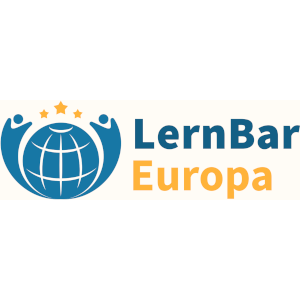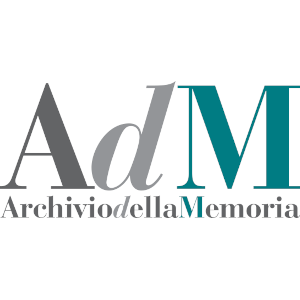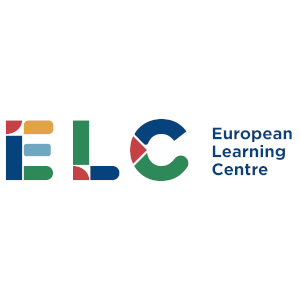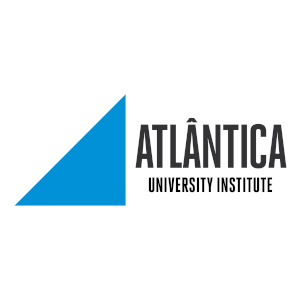We are 8 Partners from 6 countries: Germany, Italy, Türkiye, Spain, Poland and Portugal.

LernBar Europa e.V. – Lingen (Germany) – Project Coordinator
The LernBar Europa e.V. association was founded at the end of 2021 and is still a very young association. Its members are committed to promoting a European identity, active citizenship, tolerance and respect for other people and cultures.
We firmly believe that education and culture are the best means to build, promote and strengthen a European identity and its values to meet the challenges of our common time.
Our aim is to build a network of like-minded organisations at regional, national and above all European level to organise events and projects in line with the guidelines of European educational and cultural policy. The programme focuses on lifelong learning for all as well as participation, encounters, and exchange.
Website: https://lernbar-europa.eu
Facebook: https://www.facebook.com/profile.php?id=61552301242126

Archivio della Memoria – Rome (Italy)
Archivio della Memoria is a cultural association founded in 2002 and based in Rome, Italy. It is specialized in carrying out social, historical, anthropological and territorial marketing research and in creating highly innovative educational supports on behalf of universities, public bodies and private organizations in the field of Adult, Youth, School, Vet and Higher Education.
AdM operates both in urban areas and in small towns, in Italy and abroad, actively interacting with local communities, especially those characterized by marginalization and social disadvantage, developing qualitative and quantitative research, visual documentation and organizing educational projects either for adults or children and young people in the subjects of its competence.
Many research and communication projects, such as campaigns dedicated to the school and university contexts – have been developed over the years in close collaboration with public and private organizations, academic and institutional bodies, such as the Lazio Region and the Municipality of Rome.
AdM also carries out Digital Storytelling activities in the field of anthropological, sociological, historical and environmental research for the documentation, recovery and enhancement of cultures, traditions, local knowledge and realities at greater risk of disappearance.
Also, an active cooperation is going on in the context of social and innovative entrepreneurship through the developing of Entrepreneurship Education projects and training outcomes.
Since 2007, AdM has developed several EU Educational Projects, as a coordinator and as a partner organization, in the fields of Digitalization, Environment and Climate Change, Cultural Heritage, Entrepreneurship Education, Mental Issues and Hyperconnectivity in the digital reality and gaming.
Website: www.archiviodellamemoria.it
LinkedIn: https://www.linkedin.com/company/archivio-della-memoria
Facebook: https://www.facebook.com/people/Archivio-della-Memoria/100077378238925/
Instagram: https://www.instagram.com/archiviodellamemoria/

SBTC DANISMANLIK – Menteşe (Türkiye)
Solution Based Training & Consultancy (SBTC) has developed a range of consulting services ranging from an independent well control advisor to providing advice on managing change in the workplace for both employers’ and employee’s needs. SBTC offers solutions for the specific problems of its target groups by developing tailored solutions for several areas for entrepreneurship including social entrepreneurship.
The main aspects of these consulting services encompass every part of the business spectrum including works in supporting and promoting the vocational education and lifelong learning; organizing international cooperation with similar organizations; developing and promoting solutions in public; stimulating the creative works through recognition and other forms of motivation and cultural heritage. SBTC provides direct consultancy work with clients, provide in house and public training courses and offer “change” consultancy with local authorities and organizations.
Besides, in its region as a consulting company SBTC promotes and protects the well-being and existence of our world heritage, culture and diversity. By providing sustainable and long-term solutions for both intangible and tangible heritage projects, the shareholders and stakeholders of SBTC receive real results encompassing the authenticity and integrity of their heritage projects, too.
Website: http://www.sbtc-tr.com/en
Facebook: https://www.facebook.com/profile.php?id=100075591864636

European Learning Center – Ubrique (Spain)
European Learning Centre belongs to a network of four training centres in the rural area of the Cadiz Mountains in Southern Spain and a management office in Madrid, Spain. Our chief areas of training are in language learning, ICT, and professional training. Our region could be generally described as industrial (leather manufacturing, agriculture, mainly), geographically isolated, and with one of the highest levels of unemployment in Spain.
Our institutions work primarily with youngsters, underrepresented groups such as immigrants and refugees but also with adults in the local and regional community interested in furthering their education in a non-formal context. Public funding is received to subsidise the accreditation and certification of the training received.
Being part of this previously mentioned network of private and public partnerships, which has allowed us to carry out multiple initiatives regarding environmental education, integration of underrepresented groups and the specific training in digital skills, languages and social inclusion. For the last 10 years, ELC has been closely collaborating in the areas of adult education with CEPER-7V which is the permanent network of adult education centres in our region. Another important collaboration presently exists between ELC and a consortium of local authorities (Town Hall)- the Youth Information Office and the major Association of SMEs in our area. The main aim of this recently-created consortium is to improve the success in helping unemployed youth find a job and better spread the information available for youth and adults in our area.
Website: https://europeanlc.es/en/
Facebook: https://www.facebook.com/europeanlc/

DANMAR COMPUTERS – Rzeszów (Poland)
Danmar Computers is a private company operating in the field of Information Technology, with experience in developing modern web and mobile applications that are used for educational purposes. DANMAR is also a provider of vocational education and training on IT with long-term experience in carrying out European projects matching the needs of various target groups. During 25 years, the company has successfully implemented over 160 projects within Grundtvig, Leonardo da Vinci, Progress, Cosme, HORIZON2020 and Erasmus+. In many of these projects DANMAR was responsible for designing and coordinating dissemination strategies. Danmar Computers is also the developer and provider of AdminProject, the on-line European project management system.
The mission of Danmar Computers is the promotion of life-long education and assurance of equal access to education for everyone with the use of modern technology.
Website: https://danmar-computers.com.pl/en/
LinkedIn: https://www.linkedin.com/company/danmar-computers
Facebook: https://www.facebook.com/DanmarComputersEU

EIA SA -Atlântica – Barcarena (Portugal)
EIA SA -Atlântica is a private university Institution integrated into the Portuguese Higher Education System. Created in 1996 as a public interest institution, is a reference, focused on the creation, transmission and diffusion of knowledge, sciences and technology through in the areas of Business Sciences, Health, Information Technology and Engineering. With successfully implemented projects within H2020/H2030, Erasmus+, PT2020 and Next Generation – PRR, one of Atlântica aims is the internationalization of policies on pedagogical level, as well as scientific research and its application for the quality of life and teaching. Atlântica combines individual efforts with collective goals, involving researchers from various scientific areas, such as IT, Health, Management, Social Sciences, Engineering, with a strong interdisciplinary orientation, in the development and implementation of the various projects. Thus, Atlântica seeks to respond to the major social challenges of the global world by sharing an articulated vision among its various research and development units.
Atlântica
Website: https://www.uatlantica.pt/
LinkedIn: https://www.linkedin.com/school/universidade-atl-ntica/
Facebook: https://www.facebook.com/universidadeatlantica
Atlântica Projects
LinkedIn: https://www.linkedin.com/showcase/atl%C3%A2ntica-projects/
Facebook: https://www.facebook.com/profile.php?id=100083568692693

Agrupamento Marinhas do Sal – Rio Maior (Portugal)
Our school is situated in Rio Maior, a small city, 80 km north of Lisbon, the capital. We have pupils, both from Rio Maior and the villages nearby. There are about 1100 students, aged from 6 to 16 years old. We have 110 about qualified teachers. Many of these students live in a rural area and are socially and culturally poor. Many have low motivation for studying, show difficulties in learning the English language and lack the knowledge about foreign cultures, namely European countries. Our previous experience in running Comenius and Erasmus+ projects has showed us that students involved in an enterprise like this project have developed their abilities of using foreign languages, ICT skills, their motivation for learning, their self-esteem, and also their interest in understanding the social and cultural aspects of European counties. All the staff members and school partners (parents, local firms, associations) of our school declare a great interest in working on this project as they have a great desire to work, once again, on a European project, especially one linked to inclusion. In order to solve the above problems diagnosed, we have developed a school philosophy-based Inclusion through extra-curricular activities. Nowadays, students from different countries arrived to our school. We have about 200 foreign students from: Angola; Brazil; Cabo Verde; China; Cuba; USA; France; India; Moldova; United Kingdom; Suisse; Ukraine; Venezuela; Germany; Belgium; Romania and Spain. We have a great challenge to work with these students, because is a new situation in our school. The biggest problem is the communication. Our school is working towards being a front-runner in Future Classroom Lab type teaching/learning methodology which we have been developing over the years, in order to deal with problematic situations such as students who have many cognitive difficulties, physical disabilities and a history of school failures but also to allow students with superior cognitive abilities to shine a explore their abilities and capacities. Some families are unable to change their limited situations because their lives were also marked by the same difficulties and exclusion has marked their lives. To overcome this situation school must provide the tools and means to make them feel and be effectively integrated in an Inclusive School and these extra-curricular activities is one of the best ways to achieve this, while promoting future social inclusion in life after school.
Techniques and methodologies used in our school to promote learning through extra-curricular activities including specific classes of Portuguese to foreign students, Project-based Learning in which projects are more than linguistic or mathematical/analytical but also based on Art, Dance, Music, Theatre, Outdoor activities, ICT, knowledge of Nature (our school is an Eco-School) and, of course, social awareness and wellbeing. The school moto is ‘Let’s make our students happy’.
Besides project-work our school has numerous clubs to promote the acquisition of competences in diverse areas according to students’ personal tastes and capabilities: Debate and Argumentation Club, European Club, Sea and Army Cadets Club, Eco-arts and Decorative arts Clubs, various Sports Clubs (Basketball, Futsal, Swimming, Table Tennis and Boccia an Inclusive sport), Dance and Music. To make these clubs a reality we have a group of teachers (one or two per club) who specialize in each of these areas and can share their knowledge with other teachers and students throughout the project.
Our main motivation is to create a project with the aim of cultural exchanges, foreign language development and inclusion of foreign students Our institution is a school which focuses on project-based learning to provide students alternative ways of learning techniques and to work on competences for 21st Century. For this reason, our staff has experience in local, national and international projects. Our students have been very eager to share their cultural elements such as traditional music, dances, schools and their environments as well they are open to know other cultures.
Website: https://marinhasdosal.sharepoint.com/SitePages/Entrada.aspx
Facebook: https://www.facebook.com/profile.php?id=100063710126847
IIS MICHELE GIUA – Cagliari (Italy)
The “Michele Giua” Institute, founded in 1968, takes its name from the famous Sardinian chemist. Immediately it has been established on the island as “the school of chemical experts”, able to train specialized technicians. Over the years, opened to problems and needs of the territory, it has progressively been enriched with new study courses. Now it offers two different paths:
- Technical Institute belonging to the technological sector:
- IT and Telecommunications.
- Chemistry, Materials and Biotechnologies, with articulation in Chemistry and Materials and in Environmental Biotechnologies.
- Scientific Lyceum with the option Applied Sciences.
The school has a structure articulated in the territory with the headquarters in Cagliari, located in the outskirts of the city adjacent to the city centre of Cagliari, the regional capital of Sardinia Island, and the detached section of Assemini, in the hinterland. The urban area of Cagliari has a population of about 422.308 inhabitants whose 36.53% corresponds to the city. It includes 15 neighbour municipalities.
The territory in which the two plexuses are located presents characteristics of homogeneity in the economic and the activities context. It relates to:
- A wide diffusion of the tertiary sector with a propensity to the tourist and tourist congress sector which ensures the possibility of getting in touch with the research, finance, and high professions.
- Production of craft type, with small and medium-sized businesses.
- Industrial production and related industries.
- Social and cultural services.
- Public transport service that ensures connections with neighbour provinces, encouraging the flow of commuting students.
About 50% of students live in Cagliari while the other 50% come from the vast metropolitan area and the province. The total number of students is 1052 units with a clear male prevalence (912M – 140F).
The school currently has 55 classes. The percentage of non-EU students is equal to 3.2% and the enrolment trend leads to growth. The teachers are 172 and the workers dedicated to technical, general and administrative services – called A.T.A. workers – are 39. Among the A.T.A. staff there are the technical assistants, they work in the laboratories where they are in contact with teachers and students, and they are mainly dedicated to the maintenance of software and hardware components. The entire school staff is 212 unit including the headmaster.
The school has always paid attention to all students with learning difficulties. In this school year there are 37 students with disabilities (group H), 7 of them are attending a different programme. There are also 88 certified students with specific learning disabilities and with special educational needs. They attend a special customized program.
The school is affected by its location and by the socio-economic conditions of the users. In fact, in the last years, many families have suffered from the economic crisis that hit the territory and at the same time, the interventions of local institutions have been reduced to support the needy students. In this context, the institute has tried to combat school dropout, cope with new strategies to promote school inclusion and pay attention to students’ special educational needs, spreading new technologies in teaching.
Website: http://www.giua.edu.it/
Facebook: https://www.facebook.com/iisgiua/
Instagram: https://www.instagram.com/iisgiua/

 Español
Español Polski
Polski Turkish
Turkish Português
Português Deutsch
Deutsch Italiano
Italiano